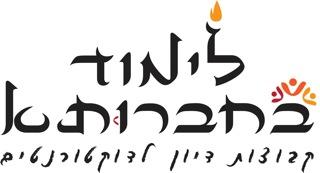המפגש עסק בטקסט מנדאי שנמסר בשתי גרסאות: כחלק מתפילת 'אודין ותושביחאן' מסדר התפילה (קולסאתא מספר 75) וכחלק מן החיבור המרכזי 'גינזא רבא' (גינזא ימינא, עמ' 174–175). מדובר בהמנון לאל 'חַיֵּיא', שלו זיקות ברורות למזמורים העבריים תהלים קיד ותהלים כט. את המפגש הנחה איתי קגן. חלקו הראשון של המפגש כלל מבוא קצר על המנדאים, על ספרותם ועל לשונם. בחלק השני קראנו את הטקסטים בתשומת לב למאפיינים הייחודיים לניב זה מבחינת כתיב, פונולוגיה ומורפולוגיה. בחלק השליש דנו בזיקות של שני הטקסטים זה לזה ובזיקתם למזמורי המקרא. כחלק מכך, נבחנה האפשרות של מוצא מערבי של המזמור בשל ייחוד לקסיקלי בארמית המזרחית, וכן נדונה האפשרות שהטקסט לא הגיע למנדאים הישר מן המקרא, אלא במסלול מורכב יותר.
משתתפים: איתי קגן, אלון ברנד, ירוסלב מודרון, פטרה שמידטקונץ, יעל קרמר, שלומי אפרתי, אריה צורף, עדי אמסטרדם.
Seventh Session (4/8/2021): The Mandaic Version of Psalm 114
The session dealt with a Mandaic text transmitted in two versions: as part of the prayer "Audin Utushbihan" from the prayer-book (Qulsata #75) and as part of the important composition Ginza Rba (Ginza Yemina, pp. 174-175). This is a Hymn to the god 'Hayye' (Life), which has obvious links to the Hebrew hymns Psalm 114 and Psalm 29. The session was headed by Itai Kagan. Its first part consisted of an introduction to the Mandaeans, their literature and their language. In the second part we read the texts with special attention to the unique characteristics of this dialect in matters of orthography, phonology, and morphology. In the third part we discussed the relationship between the two versions of the text, and their possible relationship to their biblical counterparts. As part of that, we considered the possibility of a western source for the text, due to the lexical profile, which is somewhat unique in Eastern Aramaic, as well as the possibility of the text not being a direct borrowing from the Bible, but rather arriving via a more complex route.
Participants: Itai Kagan, Alon Brand, Jaroslav Mudron, Petra Schimdtkunz, Yael Krämer, Shlomi Efrati, Arye Zoref, Adi Amsterdam.


